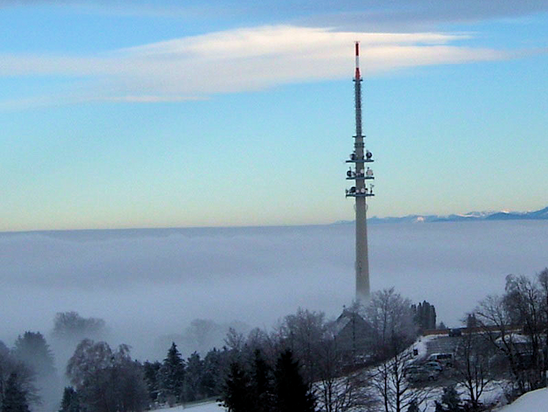Project
ICOS-D
![[Translate to English:]](/media/_processed_/3/6/csm_icos_d_20211020_084621_1350px_ec6e639f00.jpg)
National Contribution to the Integrated Carbon Observation System (ICOS)
Greenhouse gases have no respect for frontiers. To monitor the atmosphere European researchers are setting up an "Integrated Carbon Observation System". It will consist of europe-wide, continuous measurements of greenhouse gases.
Background and Objective
The ICOS reserach infrastructure tracks carbon fluxes in Europe and adjacent regions by monitoring the ecosystems, the atmosphere and the oceans through integrated networks. It provides the long-term observations required to understand the present state and predict future behavior of the global carbon cycle and greenhouse gas emissions. Furthermore it monitors and assesses the effectiveness of carbon sequestration and/or greenhouse gases emission reduction activities at the level of global atmospheric composition. The monitoring program also includes the attribution of sources and sinks to regions and sectors. The Thünen Institute of Climate Smart Agriculture coordinates the German contribution to the research infrastructure.
Approach
Thünen-Contact

Involved Thünen-Partners
Involved external Thünen-Partners
-
Hochschule Weihenstephan-Triesdorf
(Weihenstephan, Deutschland) -
Forschungszentrum Jülich
(Jülich, Deutschland) -
Technische Universität Dresden
(Dresden, Tharandt, Deutschland) - Deutscher Wetterdienst (DWD)
(Offenbach, Deutschland) - Leibniz-Institut für Ostseeforschung Warnemünde (IOW)
(Warnemünde, Deutschland) -
Universität Heidelberg
(Heidelberg, Deutschland) - Max - Planck - Institut für Biogeochemie
(Jena, Deutschland) - Alfred Wegener Institut (AWI) - Helmholtz -Zentrum für Polar und Meeresforschung
(Bremerhaven, List (Sylt), Deutschland) - Georg-August-Universität Göttingen
(Göttingen, Deutschland) - GEOMAR - Helmholtz Zentrum für Ozeanforschung Kiel
(Kiel, Deutschland) - Helmholtz-Zentrum für Umweltforschung (UFZ)
(Leipzig, Deutschland) -
Karlsruher Institut für Technologie (KIT)
(Garmisch-Partenkirchen, Deutschland) - Umweltbundesamt (UBA)
(Dessau-Roßlau, Deutschland) -
Albert-Ludwig Universität Freiburg
(Freiburg, Deutschland) - Landesbetrieb Forst Brandenburg – Eberswalde (LFE) / Landeskompetenzzentrum Forst Eberswalde (LFE)
(Eberswalde, Deutschland)
Funding Body
-
Federal Ministry of Research, Technology and Space (BMFTR)
(national, öffentlich) -
Bundesministerium für Verkehr und digitale Infrastruktur (BMVI)
(national, öffentlich)
Duration
Permanent task 1.2014
More Information
Project status:
ongoing

![[Translate to English:] [Translate to English:]](/media/_processed_/6/4/csm_titel_CO2Kampagne8_afeea2273e.png)
![[Translate to English:] [Translate to English:]](/media/_processed_/4/1/csm_titel_93px_CO2Kampagne8_9b0f3354d4.png)








